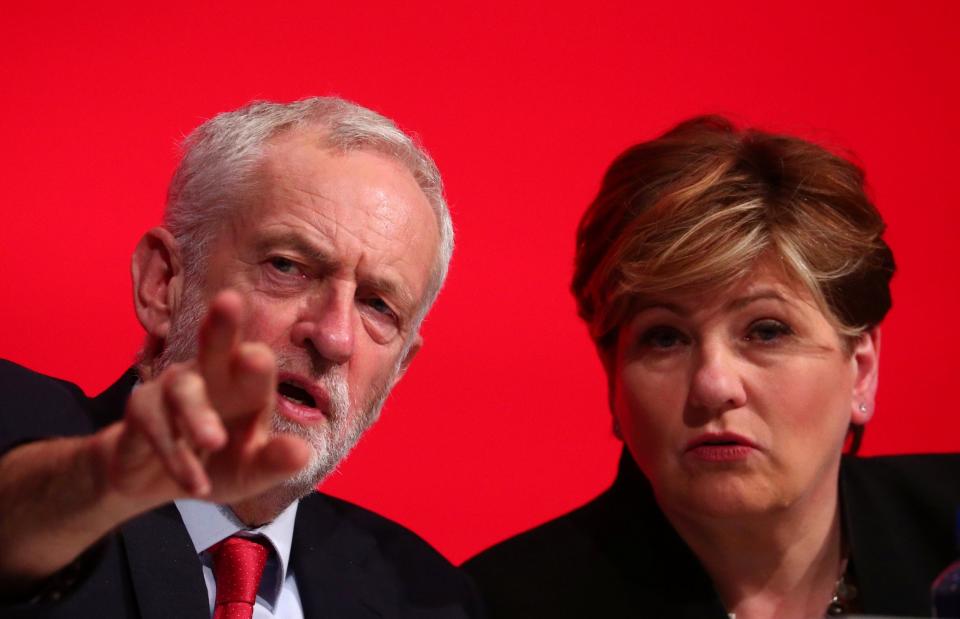Emily Thornberry has blown Labour’s split wide open
Just before the first result came in from the North East region, Emily Thornberry announced a split in the Labour Party live on air. She is not just shadow foreign secretary, but Jeremy Corbyn’s other deputy, the one who stands in for him at Prime Minister’s Questions.
She admitted that her party had done badly in the elections and explained why. “We were not clear on the one single thing people wanted to hear. We should have said quite simply that any deal that comes out of this government should be put to a confirmatory referendum; that Remain should be on the ballot paper; and that Labour would campaign to Remain.”
She was saying, in effect, that Corbyn’s strategy for fighting this campaign was the wrong one. She was saying what many Labour activists felt, which was that, if Corbyn had come out for a referendum, he would have enjoyed the success that the Liberal Democrats were so conspicuously enjoying.
They cannot understand Corbyn’s thinking, because it seems so obvious that a clearer policy of advocating a referendum would have gained Labour more votes from the Lib Dems, Greens, Change UK and the nationalists than it would have lost to the Brexit Party – because most of those Farageiste votes have gone anyway.
Corbyn’s other deputy, Tom Watson, had already said it: “Labour voters and members saw our position in this election for what it was. A deliberate and ultimately self defeating attempt to triangulate between different groups.” But he is licensed to do so, as the leader of the official internal opposition. He has a mandate of his own, elected by the members.
So Corbyn can’t sack him and has never trusted him. But Corbyn can sack Thornberry and has relied on her to be combative and supportive on the media. Sometimes she came close to the line of disloyalty to promote her own ambitions, but tonight she went straight past the line as if it weren’t there and she didn’t care.
The contrast with Shami Chakrabarti, the other Corbyn loyalist sent out to make the leader’s case on the media today, is striking. Chakrabarti, the shadow attorney general, tried to smooth over Watson’s comments and say she understood Labour members’ frustrations.
But she went on to say: “A second referendum now or in the future would be a means of breaking the deadlock in our country, not a means of stealing Brexit from those who voted for it.”
This is precisely the triangulation that Watson complained of. She would not commit to a new referendum, and said that if it happened it mustn’t be seen as a way of blocking Brexit.
She is still on board with the strategy of the inner Corbyn circle. As I understand it, they believe that if Labour had adopted a clear referendum policy – that is, as Thornberry said, advocating Remain – it would have put the party on the wrong side of the Brexit betrayal story when it did not need to.
The calculation may be: let the Tories soak up the greater part of the fury at the failure to deliver Brexit. To have put Labour clearly on the side of denying the people what they voted for would have meant Labour sharing the blame with the Tories. This way, Corbyn has a disastrous and painful night, but in the end he believes he will be in a better position to fight a general election. In a general election, the Lib Dems won’t be helped by proportional representation and Remainers will come back to Labour, especially if he creeps a bit further towards a referendum in the meantime.
The trouble with that cunning plan is that it risks splitting his party. Emily Thornberry has just blown that split wide open.

 Yahoo News
Yahoo News 

